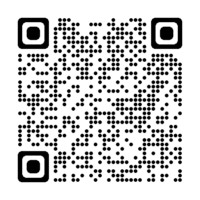NSQHS: Standard 8: DETERIORATING PATIENT BULLETIN JUNE | 2023
-
Introducing the Recognising and Responding to Acute Deterioration ‘Exceptional 8’
The ’Exceptional 8’ team are multi-disciplinary leads brought together to support the organisation and the WH Safe Care Committee, bring awareness of and continuously improve WH practice against NSQHS Standard 8 requirements.
The Exceptional 8 Team is:
Team Lead: Wendy Giddings
Quality Lead: Amy Roulston
Education lead: Sam Mineo
Allied Health Lead: Cath Grant
Medical Lead: Nicky Dobos
ICU & CCOR Operations Manager – Kylie Fisher
Mental Health – Devanshu Raithaththa
ADONM Safer Care – Leanne Nuske
-
Do you have any questions?
For any queries about Recognising & Responding to Acute Deterioration you’d like to direct to the NSQHS Std 8 Exceptional 8 or others, please contact BestCare@wh.org.au
-
Like to know more about Accreditation Readiness?
Visit our Live Best Care site at https://westerly.wh.org.au/livebestcare/ or use the following QR Code to find out more about NSQHS Standard Readiness.

From Wendy
 As part of Accreditation Readiness activity, a NSQHS Standard of the Fortnight initiative has been introduced. This involves a focus on one Standard per fortnight, with communications and walkarounds to help staff be aware of how Best Care at Western Health reflects this Standard, to ask staff possible Surveyor questions and answers, and to walk in a Surveyor’s shoes to see what WH practice looks like.
As part of Accreditation Readiness activity, a NSQHS Standard of the Fortnight initiative has been introduced. This involves a focus on one Standard per fortnight, with communications and walkarounds to help staff be aware of how Best Care at Western Health reflects this Standard, to ask staff possible Surveyor questions and answers, and to walk in a Surveyor’s shoes to see what WH practice looks like.
We are excited that NSQHS Standard 8: Recognising and Responding to Acute Deterioration is to be the focus of the eighth Standard of the fortnight. This will run from Monday 12 June to Sunday 25 June. Look out for friendly Best Care Co-ordinators, Exceptional 8 team members and other staff who will pop into clinical areas/departments to talk with you about Recognising and Responding to Acute Deterioration.
The Recognising and Responding to Acute Deterioration Standard aims to ensure that acute deterioration in a patient’s physical, mental or cognitive condition is recognised promptly and appropriate action is taken.
The Recognising and Responding to Acute Deterioration Standard supports Western Health to provide Safe Care.
Western Health’s comprehensive approach to Recognising and Responding to Acute Deterioration draws upon requirements of this Standard and supports the monitoring, review and improvement of safe care. Programs and strategies to help support recognising and responding to acute deterioration include:
- Screening, assessment and comprehensive care planning to identify patients at risk of acute deterioration, and develop appropriate monitoring, treatment and escalation plans.
- Escalation and emergency assistance processes (eg Urgent Clinical Review, Medical Emergency Team (MET) response, and Code Blue response. These include roles, responsibilities and accountabilities of multidisciplinary team members in recognising and responding to acute deterioration.
- Patient and family escalation systems through ‘Call for Help’. FAQ and messaging.
- The WH Centre for Education supports multidisciplinary programs that train staff in recognition and response to clinical deterioration inclusive of all patient cohorts and ages available in multiple languages. The programs are supported by WH’s Simulation facilities. Instructional videos available on intranet and internet. WeLearn training packages are available on the WH Rapid Response System and Call for Help procedures.
Our Exceptional 8 team have brought together nursing, medical, allied health, mental health, ICU liaison services, education, and quality expertise to support our ongoing compliance with NSQHS Std 8. We are working closely with Western Health’s Safe Care Committee to ensure we are continually monitoring, reviewing and improving coordinated and safe care for patients.
The good news is we are already providing Best Care and living up to the requirements of NSQHS Std 8 on Recognising and Responding to Acute Deterioration in our everyday work! It is why we performed exceptionally in the 2020 Accreditation Survey. This year’s Survey is simply a chance to show once again how well we support safe care at Western Health.
Please continue reading to find out more about our Recognising and Responding to Acute Deterioration strategies, achievements and opportunities for improvement, as well as resources to help you to be Accreditation Ready for NSQHS Std 8.
Wendy Giddings
NSQHS Std 8 ‘Exceptional 8’ Team Lead
Director of Nursing & Midwifery, Bacchus Marsh
Division: Aged, Cancer & Continuing Care
Resource Centre
The following resources have been put together to support staff to be aware of the NSQHS Recognising and Responding to Acute Deterioration Standard and Accreditation Ready for Survey against this Standard:
Patient Story
 A Family placed a Call for help in ICU regarding concerns with care by the home team.
A Family placed a Call for help in ICU regarding concerns with care by the home team.
The family’s concerns revolved around communication issues, confusion over plan of recovery and the family’s preference to transition to comfort care if patient not improving.
The ICU Liaison Nurse (LN) responded to the call for help. After spending time with the family and listening to their concerns, a family meeting was arranged with the key staff present.
The family were heard and involved in the decision making. Together we were able to facilitate their wishes such as
- Moving their Dad to a single room in a ward with appropriate Goals of Care C as agreed by family and treating teams.
- Ongoing connection with ICU LN to touch base with family each day to offer opportunity to ask questions.
- Plan for a further family meeting in 2 weeks to consider next steps.
Summary:
Call for help calls are not frequently triggered especially in ICU however they do allow a senior clinician to address issues that normally they would not be aware of this.
The case was a typical of a call for help with communication being a central theme. Although we are unable to control the trajectory of the patient’s condition we were able to provide ongoing support to the family during this very difficult and challenging time.
Improvement Initiatives
There are multiple improvement initiatives that have improved Recognising and Responding to Acute Deterioration. Do you know about these?
- Significant work has been undertaken in the delirium space. Tools and resources have been developed and implemented to screen, diagnose/ prevent and manage delirium.
- Processes to ensure appropriate and timely referral of patients whose mental state is acutely deteriorating, including patients at risk of depression or who have developed delirium.
- Implementation of Standardised processes, trolleys and emergency bedside equipment.
- The PPH collaborative with Safer Care Victoria led to a progressive reduction in PPH > 1.5 L at BMM and JK. JK PPH rates went from 4-5% in 2020-2021 to 2.9% in 2022. BM rates went from 6.67 to 4.5%.
- Implementation of a 3 tiered response system and 2222 at Bacchus Marsh and Melton.

Achievements and Opportunities
We are proud of…
- Our standardised systems across all WH sites, including acute resuscitation forms, rapid response systems, first responder and code trolleys, emergency bedside equipment.
- Our commitment to multidisciplinary training in recognition and response of deteriorating patient including simulation training, Welearn modules, increased junior doctor training and ongoing financial support to fund specialist training eg. APLS courses.
- Data and performance dashboard which informs improvement initiatives such as Patient alert dashboard for ICU Liaison team.
- Deteriorating patient COVID response during the pandemic.
- Investment and establishment of the Critical Care outreach Team.
- Seamless transition to 2222 emergency code number in line with state.
- IT upgrades to support rapid response eg paging upgrades, Ascom upgrades.
- External collaborations focusing on improved outcomes for deteriorating patients, such as delirium identification and management, sepsis management, post partum haemorrhage project, subacute and non-acute access an pathways (SNAP).
- Improving focus on crisis resource management and communication skills during clinical emergencies.
We are looking forward to…
- The updating of vital equipment such as new defibrillators across all sites.
- Continued commitment to further training programs/opportunities.
- Improving data collection and dashboards eg. women’s and children’s, BMM.
Our focus continues on…
- Bacchus Marsh and Melton working towards implementation of a 3 tiered response system, call for help and implementation of 2222. Go live date of 3rd July, 2023.
- Deteriorating patient focus as part of correctional health transition work.
- Deteriorating patient focus as part of mental health transition work.
- Risk assessment compliance eg 4AT, suicide and self harm.
- PPG updates.
Key Messages
|
Data Analysis |
Key Messages |
|
| Early recognition of deteriorating patients. | Data demonstrates a decrease in code blues and increase in MET calls | Let’s continue to improve early detection by:
Staff identifying changes and acute clinical deterioration Continuing awareness of escalation processes Utilising track and trigger changes correctly (EMR and paper based) |
| Compliance with PHQ2 tool (depression screen in the risk assessment tool) | Improved compliance with the PHQ2 tool with latest data revealing 87% completion | Let’s continue to improve early detection by:
Improving Identification of mental health deterioration through increased use of PHQ2 tool on admission Improving compliance of completion of the PHQ2 |
| Call for help | Data reveals most ‘call for help’ calls are made for communication and pain related concerns | Let’s continue to engage with our patients and families by:
Informing patients and families about the Call for Help program Providing information on admission as part of orientation to the ward Increasing awareness of FAQ brochures available on the internet for patients and visitors in multiple languages. Prominently displaying ‘Call for help’ stickers and posters Promoting FAQ available for staff on the intranet Promoting Instructional video for staff, patients and visitors (Instructional Video) |
| Education | Lifelong journey | Let’s improve our detection of and response to deteriorating patients through :
Speaking with our dedicated standard 8 educators Completing WeLearn packages Participating in Resuscitation programs from neonatal to adult, including training staff according to role and patient cohort (mandatory training) Embracing Simulation training opportunities |
| Monitoring | Data for MET and Code Blue is recorded in the MET register component of Riskman, the deteriorating patient committee KPI reports, and dashboards to guide our monitoring of how we are doing | Let’s improve how we continually monitor the management of patient deterioration by:
Reviewing Incidents or occasions of patient deterioration and escalating further discussion in forums such as :
|
| Delirium | Data is collected through SQID | Let’s improve the detection of mental state deterioration by:
Completing an observational question each shift by nursing staff that will monitor for a new change in thinking and behaviour and potential deterioration in mental status. Implementing WH Delirium Guidelines; cognitive screening is part of routine nurse led review of all patients 18 years and over. This incorporates the 4AT tool to screen for delirium and cognitive impairment within 4 hours of admission to the ward, including GCS for a baseline cognitive status. |
| 24/7 Critical Care Outreach Intensive Care Liaison service (FH & SH) | Introduction of the service has led to significant improvement and oversight of those most vulnerable unwell patients | Let’s improve the coordinated care of our most vulnerable and unwell patients by:
Providing a liaison service of expert clinical staff specialising in Critical care and ICU that
|

